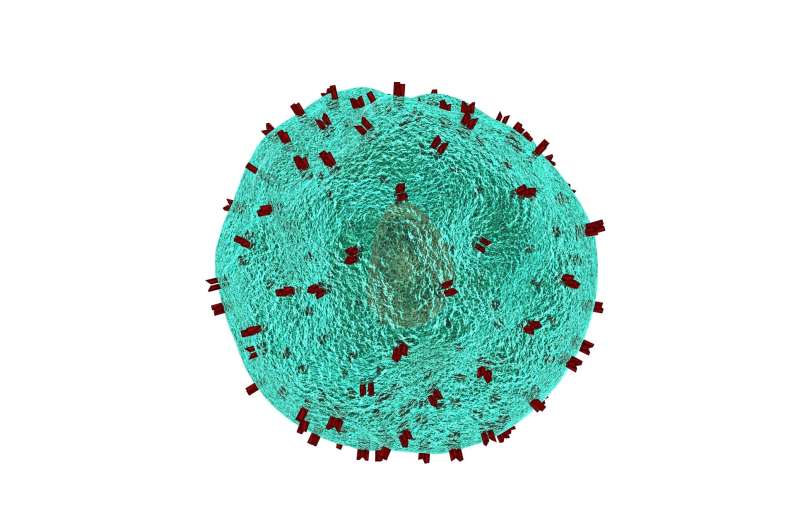This article has been reviewed according to Science X's editorial process and policies. Editors have highlighted the following attributes while ensuring the content's credibility:
fact-checked
peer-reviewed publication
trusted source
proofread
New study discovers how specialized white blood cells operate, could lead to preventive treatments

Researchers have cracked how a particular type of immune cell develops in the body and protects against infection and disease. And the discovery could help in the development of more preventive treatments, according to a new study.
The research, led by Murdoch Children's Research Institute and Federation University Australia, has uncovered how these specialized white blood cells operate and can produce an immune response.
Associate Professor Dan Pellicci said by understanding the function of these cells, they could be harnessed to help prevent cancer and highly infectious diseases such as COVID-19, Strep A and tuberculosis.
Published in Science Immunology, the study involved samples donated to the Melbourne Children's Heart Tissue Bank from heart surgery patients up to 16 years old. From these samples, the researchers looked at the role of "gamma delta T cells" within the thymus gland, a small organ located within the chest, close to the heart.
Associate Professor Pellicci said the study showed for the first time how this organ produced these infection-fighting immune cells.
"We have large numbers of these specialized cells in our blood and tissues, which accumulate as we become adults. Until our study, it was unclear how these cells develop in the body," he said.
"We have shown how these cells are trained over three stages, similar to receiving a primary, secondary and tertiary education, and fully formulate within the thymus. Following this education, the cells are ready to enter the rest of the body and are completely capable of fighting infections."
Associate Professor Pellicci said previous studies suggested that these immune cells were mainly derived in the liver during a baby's development in the womb, but this research debunked that theory.
"Many experts assumed that after birth, the thymus played little role in the development of these cells as we age, but we now know this little unsung organ helps the body prepare for a lifetime of good health," he said.
"The more we know about these cells the greater the likelihood of unlocking new ways to treat infectious diseases and cancer."
Researchers from the University of Melbourne, The Fiona Elsey Cancer Research Institute, Federation University, Peter Doherty Institute for Infection and Immunity, Melbourne Center for Cardiovascular Genomics and Regenerative Medicine, The Royal Children's Hospital and the Walter and Eliza Hall Institute of Medical Research also contributed to the findings.
More information: Louis Perriman et al, A three-stage developmental pathway for human Vγ9Vδ2 T cells within the postnatal thymus, Science Immunology (2023). DOI: 10.1126/sciimmunol.abo4365

















